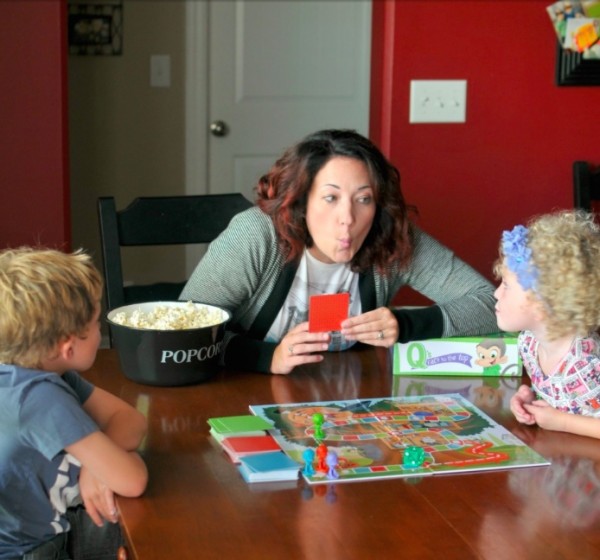
Guest post by Sofia Dickens
For years I’ve been hearing people talk about the importance of emotional intelligence, often referred to as EQ, and how it’s vital to a person’s success in life- their career satisfaction and the health of their relationships. Emotional intelligence and EQ are just is a fancy way of saying social skills, emotional control, and leadership qualities. There must be a reason 70% of Fortune 500 companies are setting aside budgets to train in emotional intelligence, right?
But as a mom of three young kids, I wasn’t quite sure how these important skills translated into parenting. How does it actually play out inside your home, when day-to-day parenting can be overwhelming as it is? I finally discovered there’s great news for all of us moms. Improving EQ is not complex or expensive– it’s attainable and affordable. It just requires us to be intentional and engaged, and to have some simple tools that make practicing easy and fun.
This is why I created EQtainment, an educational company that makes fun and affordable games, toys and videos to promote EQ. We all understand the need for our kids to read social cues, show compassion, self-motivate, cope with life’s ups and downs, and make wise decisions. So let’s make it fun!
Here are the top five ways to teach your kids these valuable skills at home:
1. Play silly games that require coordination and balance.
What? I started with this one because I thought it would surprise you. Some experts say that in order to develop mental and emotional self-control–important components of EQ–children need to first learn to control their arms and legs. So go for it! Play red light green light and freeze tag, and see how long your child can balance on one leg!
2. Label their emotions
Sometimes children have a hard time expressing their thoughts and emotions simply because they lack the vocabulary. Help them label their emotions when a good or bad situation arises so they can learn to differentiate between them.
3. Read and discuss
Since you can’t accelerate the frequency of your child’s life experiences, learn from others! By reading to your child and asking one or two simple follow up questions, you can start forming their ideas on behavior, self-awareness, and social skills. Ask your child about the character’s point of view, feelings, or actions.
4. Think out loud
By expressing your own feelings out loud and verbalizing what you’re going to do about them, your child will learn how to label and manage their own feelings. For example, tell them you’re frustrated something is not going the way you planned but that you’re going to take a deep breath and think about some solutions.
5. Celebrate practice not performance
In her best selling book Mindset, Stanford psychologist Carol Dweck shares incredible research about what happens when you start praising your child’s learning process and practice as opposed to the end result. Children who get praised for hard work and practice instead of hearing that they’re simply good at something end up learning more and are more willing to take on new challenges.
Sofia
 This former tv host and mompreneur of 3 kids just launched a company that makes games, toys, and videos to improve social skills and behavior (emotional intelligence) in kids. This is the game that every family needs in their home! They have just a few days left on their Kickstarter campaign so watch the video to see this mom’s story and order some games for Christmas gifts! Click on the video and then click “Back this Project”: www.EQtainment.com
This former tv host and mompreneur of 3 kids just launched a company that makes games, toys, and videos to improve social skills and behavior (emotional intelligence) in kids. This is the game that every family needs in their home! They have just a few days left on their Kickstarter campaign so watch the video to see this mom’s story and order some games for Christmas gifts! Click on the video and then click “Back this Project”: www.EQtainment.com









